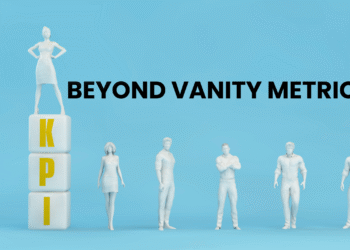The African startup ecosystem is booming. Tech startups have raised over $1 billion between January and May 2025, representing a 40% increase compared to the same period in 2024, the continent is buzzing with digital opportunity. But here’s what most marketers are missing: while you’re focused on growth metrics, African consumers are forming entirely different relationships with data than anywhere else.
And if you’re still approaching data collection with a Western playbook, you’re about to hit a wall.
The Financial Data Obsession
Forget social media data. Ignore location tracking for a moment. African consumers focus on one type of information: financial data.
When mobile money transactions exceed $490 billion annually across Sub-Saharan Africa, you begin to understand why financial data isn’t just personal information, it’s the most immediately valuable and vulnerable asset consumers possess. If your data collection processes don’t prioritise financial data security above all else, you’re building your brand on shaky ground. This is where transparency isn’t just nice-to-have; it’s business-critical.
Your Competitive Advantage Hidden in Plain Sight
Here’s a surprising opportunity most brands are missing: African consumers don’t trust their governments to protect their data. Across multiple markets, research shows widespread scepticism about government legislation and law enforcement capabilities when it comes to data protection.
But this creates a massive opening for private sector companies. While consumers may doubt government protection, they’re actively looking for businesses they can trust as data stewards. This means your company’s data practices aren’t just compliance requirements, they’re your competitive differentiation.
Recent studies show that 94% of consumers want greater control over how their data is used, a clear response to rising concerns over breaches and misuse. More than half (51%) believe that such control would make them feel more secure, while 49% say it would leave them feeling empowered. Yet, scepticism remains, 12% of respondents believe brands will never allow true control over their personal information, especially across connected devices. This growing demand for transparency is reshaping the consumer–brand relationship. For African businesses, the trust gap is not just a challenge to overcome, it is an untapped opportunity to build loyalty and long-term growth.
Trust Is the Currency
African consumers aren’t privacy purists, they’re pragmatic protectors of their information. In a recent survey by PWC, in South Africa, 92% of consumers say data protection is the single most important factor for companies to earn their trust, nearly 10% higher than the global average. A strong 89% demand clear assurances that their personal information will not be shared, and while consumers want these guarantees, only about half feel confident that they understand how their data is stored and shared.
The tension is even sharper on platforms where people spend most of their time: Most Africans worry about the security of their data on social media. This makes transparency not just a preference but a prerequisite for engagement.
The practical takeaway: African consumers are willing to interact with brands, but trust is the currency. Marketers must move beyond vague commitments and offer tangible proof of privacy protection alongside real, measurable benefits, whether that’s financial rewards, mobile data savings, or exclusive access to relevant products.
The Cultural Context Challenge: One Size Fits Nobody
Africa isn’t a single market, and data attitudes vary dramatically across the continent. Research spanning Ethiopia, Kenya, Namibia, Nigeria, South Africa, Tanzania, Togo, and Uganda shows that privacy expectations shift based on community structures, economic conditions, and digital literacy levels.
The companies winning African markets aren’t just collecting data, they’re building data relationships that feel natural and beneficial within specific cultural contexts. They understand that privacy expectations aren’t uniform across the continent, and they adjust their approaches accordingly.
The Regulatory Reality: Why Enforcement Builds Consumer Confidence
Countries like Kenya, Nigeria, and South Africa are strengthening their data protection enforcement. While funding remains a challenge, recent high-profile cases have created a “demonstration effect” that’s building consumer confidence in legal protections.
This regulatory evolution is creating more sophisticated consumers who understand the value of their personal information. The GSMA Mobile Economy Report (2024) shows that while only 15% of SMEs in West Africa currently use structured consumer data to inform business strategy, awareness is growing rapidly.
With data regulations like Nigeria’s NDPR and Ghana’s Data Protection Act gaining teeth, businesses can no longer treat data collection as an afterthought. Consumer awareness is rising, and data misuse can destroy credibility instantly.
The Bottom Line for Marketers: Trust Is Your Currency
In Africa’s trust-driven business culture, respectful and transparent data practices aren’t regulatory obligations, they’re the foundation of sustainable customer relationships. The most effective strategies combine transparency, cultural sensitivity, clear value exchange, and genuine consumer control.
Success comes from seeing data collection not as extraction, but as relationship building. African consumers are optimistic about technology (57% maintain positive outlooks compared to 44% globally), but they’re also increasingly sophisticated about data value.
Your data strategy needs to reflect this new reality. Financial data security must be paramount. Transparency must be proactive, not reactive. Value exchange must be immediate and tangible. And cultural context must inform every decision.
The African digital economy is expanding at an unprecedented pace, bringing new opportunities for businesses and consumers alike. The question isn’t whether you’ll collect data, it’s whether you’ll build the trust necessary to do it successfully.
The companies that understand this shift won’t just survive the African digital revolution, they’ll lead it.
Ready to Transform Your Data Strategy?
The evidence is compelling; privacy-first marketing isn’t just ethical practice, it’s a smart business strategy that drives measurable results across African markets. Whether you’re a multinational corporation expanding into Africa or a local brand looking to strengthen customer relationships, the time to act is now.
At Marketing Analytics Africa, we’re dedicated to equipping African businesses, marketers, and innovators with the insights and tools to thrive in the data and AI revolution.
Follow us for cutting-edge research, thought leadership, and real-world case studies. Subscribe to our newsletter for exclusive reports, webinars, and trend analyses. Partner with us to tell your brand’s data-driven success story across the continent.




